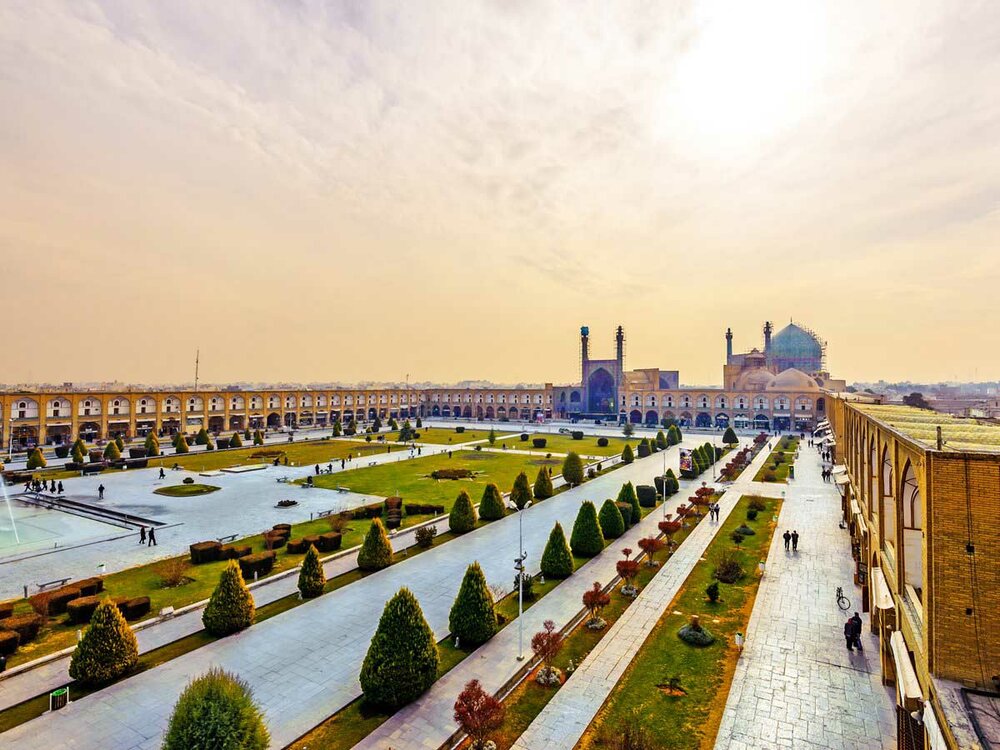‘Transportation, tourism and energy are important for making Isfahan a smart city’

TEHRAN – Smart transportation, tourism, water resources and energy are all important for making Isfahan a smart city, the secretary of smart city council of Isfahan Municipality announced, IRNA reported on Sunday.
Mehdi Behroozi made the remarks during a meeting held in Tehran on the necessity of smart city in today world.
Isfahan enjoys e-city and e-government services, he said, adding that smart transportation systems, smart traffic lights, smart traffic counter and smart air quality monitoring system have already been established in Isfahan.
However the smart city would be possible through automatic connection between these elements, he explained.
So far some applications have provided the information for empty parking spaces for the citizens, he said.
Behroozi also explained about smart irrigation system, which is already operating in the city, he added.
Cashless taxi services, which is possible through QR Code, is another service in the city of Isfahan, he explained.
The council plans to use smart methods and up-to-date applications for street parking spaces, he added.
Smart governance, smart citizen, smart ecosystem, smart economy, smart transport and smart energy are the categories of smart city worldwide, he said.
The data received by electronic devices should be processed in order to achieve the smart city goals, he added.
The good data process is a great help for smart city, he explained.
Unfortunately the laws belong to the time before digitalization and there is no facility for innovation development, he lamented.
Safety is one of the most important factors in smart cities, which should be considered before the start, he said.
Education of human resource is very important in smart city, which should be considered by the government, he said.
Strategic management, an important factor in smart cities
The smart city faces executive and operational challenges and the strategic management is one of the most important challenges in smart cities, an expert with cyberspace strategic management said.
Ehsan Shahir said that different groups of people including children, clergies, teachers and elderlies should be considered as one of the most important smart city project.
Privacy, content, software and hardware as well as IT-based infrastructures and information are important for safety factors in smart city, he said.
Smart cities - statistics & facts
According to statista, smart cities, also commonly known as cyberville, digital cities, intelligent cities, and wired cities, are urban areas that collect electronic data from citizens, devices, and assets to manage available resources more efficiently.
A wide range of information and communications technology (ICT) applications are executed to enhance, reduce costs and resource use, as well as increase the communication between government and citizens. Ideally, these applications can enhance knowledge and innovations, promote working environments, and connect technology and society. It also strives to embed a digital connection between government services and citizens to positively impact local communities.
There are dozens of ways to define a smart city based on the types of technology implemented and its goals.
For example, developments of ubiquitous cities (U-Cities) in South Korea has been notable; U-Cities aim to connect citizens to any service through any smart device.
Knowledge cities focus on the innovation of the knowledge economy and subsequently aim to increase its skilled workforce. A digital city is defined as a region that allows for increased interconnection and information sharing. Despite a wide range in the purposes behind smart cities, they generally promote the efficient use of physical infrastructure and act as a collaborative effort between locals and government to improve the city.
SB/MQ/MG
Leave a Comment